 Elshadai Aberra, 2024 PPSL Fellow, Film: Growing Mad in the Midwest
Elshadai Aberra, 2024 PPSL Fellow, Film: Growing Mad in the Midwest Shawn Antoine II, 2025 Fellow, Film: The Red Line
Shawn Antoine II, 2025 Fellow, Film: The Red Line
What was your PPSL film about?
“My PPSL film, “The Red Line” examines mental health through the lens of the Red Line CTA train in Chicago. I documented the daily commute for someone that would take the train from Howard, the most northern stop all the way to the most southern stop, the 95th Street train station. I had the opportunity to observe what commuters look like, what the environment of the train is like along this train ride, and also I got a chance to interview a couple of fellows that take the train and get their perspective about where the train has gone over the last couple of years and how it’s transformed.”
What did you gain from your PPSL experience?
“We were very fortunate to have some great guest speakers that not only advised us on filmmaking techniques but also spoke to us about mental health. As I was filming and even developing the idea of this film, mental health and mental health concerns were at the forefront. Not only the subjects and the environment, but also my own, am I approaching this film in the right mentality, in the right perspective? I would say PPSL definitely aided me in that. And then being in a space where everyone is trying to produce films with the focus of mental health was definitely a special environment, a special opportunity. PPSL created a great cohort for 2025 of filmmakers that were intentional about their works.”
Was there anything unexpected that came from the program?
“I didn’t know what to expect. It was just an idea, cultivated from my times of taking the train. That was no plan, but the energy of the train really took me on the journey. It was like, let’s go for the ride, let’s see what happens. I think that was a special thing about it. In observational documentaries, you shouldn’t know what to expect. You should find out. So, I would say the unexpected was expected. That’s a part of the process.”
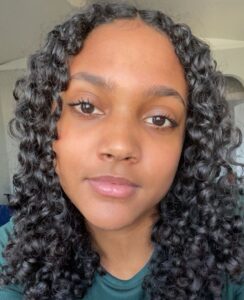 Naya Hemphill, 2024 PPSL Fellow, Film: Quicksand
Naya Hemphill, 2024 PPSL Fellow, Film: Quicksand
What is your film about?
“Quicksand is about a mother of two who is faced with her untapped potential one day and it causes her to question her life choices.”
What did you gain from your PPSL experience?
“I learned how to best portray mental health, not only from my own project but from everyone in the class, just how to take serious subjects and use them creatively to be effective.”
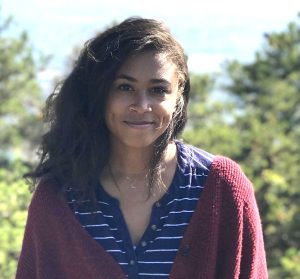 Sophia Jackson, 2025 PPSL Fellow, Film: Echo Only No Such Thing
Sophia Jackson, 2025 PPSL Fellow, Film: Echo Only No Such Thing Blake Knecht, 2025 PPSL Fellow, Film: silent harbor
Blake Knecht, 2025 PPSL Fellow, Film: silent harbor
“My PPSL film was an experimental short film. It was a correspondence between a lighthouse and a lost sailor, and it took place along the eastern coast of Lake Michigan. It touched on scenes of grief and loss and searching for peace in hard times.”
“Filming the project, I took a road trip all the way up from Chicago around the lake up to Mackinac Island and back down. And it was such an experience for me, not being from the Midwest, being able to experience so much of the Midwest through this kind of unique lens of visiting all of the lighthouses and also just really reflecting on my own experiences and questions about grief. So, I think from the experience I was able to connect with a new place in a really intimate way.”
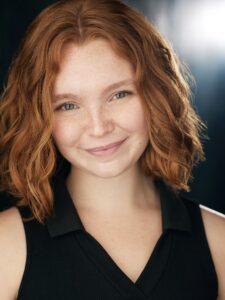 Kailey Morand, 2023 PPSL Fellow, Film: Hadley’s Home
Kailey Morand, 2023 PPSL Fellow, Film: Hadley’s Home
What is your film about?
“My PPSL film was called Hadley’s Home. It followed a little girl named Emma who was seven years old when her sister Hadley returned from the hospital after a mental health episode. It explores the family dynamics within a female family unit after an intense mental health event.”
How has PPSL influenced what you are doing now?
“I am writing a play called “Crashing In” that will be produced in February. It also centers a female family unit but is more focused on addiction. I know that my PPSL education has helped me come up with this idea and is helping me to write the play. I also got into the Sundance Film Festival Experience – though the School of Communication – I attribute most of what I had to talk about in the application to PPSL. “
What were the challenges of your PPSL experience?
“Being one of the less experienced artists in the cohort, at least in film, I was doing a lot of things for the first time. The biggest challenge was working through all of the imposter syndrome that’s associated with being allowed to do something so awesome.
 Paul O’Connor, 2025 PPSL Fellow, Film: Deliverance
Paul O’Connor, 2025 PPSL Fellow, Film: Deliverance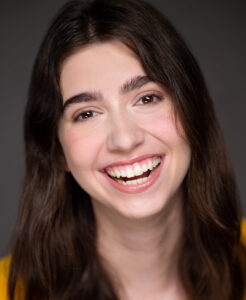 Petra Popper-Freedman, 2024 PPSL Fellow, Film: Maladaptive
Petra Popper-Freedman, 2024 PPSL Fellow, Film: Maladaptive
What is your PPSL film about?
“My film is about a person with maladaptive daydreaming attempting to go on a first date. It’s a condition where you excessively daydream to the point where it is detrimental to your life, so in the film you see that impacting her first date quite badly.”
What did you gain from your PPSL experience?
“Maladaptive daydreaming is a very internal struggle and so I’ve had difficulties in the past explaining it to my friends and my family. At the end, having this project that is an externalization of this struggle was so lovely.”
Do you have a favorite memory from PPSL?
“I loved the premiere because by that point, I had been in such a hole of editing that I forgot that it was a comedy. I was reminded of the fact that it is actually a funny film once I heard the audience laughing. It was the best feeling in the world.”
 Jennifer Ligaya Senecal, 2025 PPSL Fellow, Installation: Buhaya’s Odyssey: That Which Is Guide Toward Her Unweathering
Jennifer Ligaya Senecal, 2025 PPSL Fellow, Installation: Buhaya’s Odyssey: That Which Is Guide Toward Her Unweathering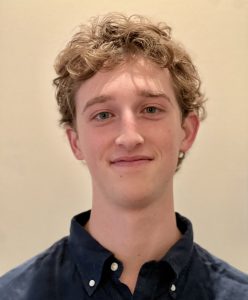 Nathan Siskel, 2024 PPSL Fellow, Film: Doh, God!
Nathan Siskel, 2024 PPSL Fellow, Film: Doh, God!
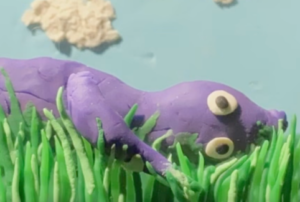 What advice would you give to somebody doing a similar project?
What advice would you give to somebody doing a similar project?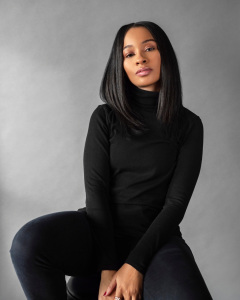 Johnaé Strong, 2023 PPSL Fellow, Film: We Have Nothing To Lose
Johnaé Strong, 2023 PPSL Fellow, Film: We Have Nothing To Lose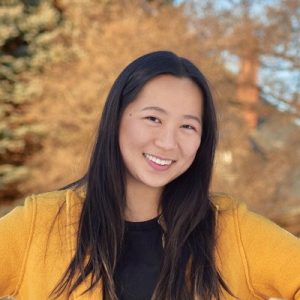 Lulu Tian, 2023 Fellow, Director of “Design for Our Lives” with MIT D-Lab, Co-founder of Creative Learning Haven
Lulu Tian, 2023 Fellow, Director of “Design for Our Lives” with MIT D-Lab, Co-founder of Creative Learning Haven